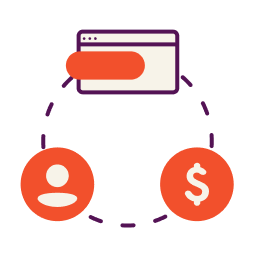You may have a great business idea, but without money you’re not sure you can get it off the ground. If you’re struggling with ideas for getting the funds you need to start a business, keep reading.
Here we’ll share small business loan and financing options for entrepreneurs who don’t have a lot of money to sink into their business.
Can I Get a Business Loan if I Have No Money in the Bank?
It is possible for small business owners to find business loan options to start a business even without a lot of money. However, it will be challenging. The type of loans, terms and qualification requirements can vary a lot, depending on the type of financing.
Here we’ll explain options and help you decide which ones may fit your business needs.
How To Get a Business Loan if You Just Started?
First, it’s helpful to understand how most lenders evaluate business loan applications. Most small business lenders and financing companies look at some or all of the following factors:
Credit
Creditworthiness is important to many lenders, and most require good or excellent credit scores. Some small business lenders will require a personal credit check, some check business credit, and some check both. New businesses will often rely on personal credit history as they have not established business credit scores.
Revenue
Most business financing sources prefer to extend credit to businesses with demonstrated revenue. Documentation in the form of business bank statements is common, and lender requirements often include specific amounts for minimum monthly or annual revenues. Even online lenders often have minimum revenue requirements. This, of course, makes it difficult for startups to qualify.
Time in Business
Because new businesses have a high failure rate, many business lenders will require a certain amount of time in business. This is a hurdle for many startups. One workaround: form a business entity (corporation or LLC) as soon as possible, even if the business isn’t making significant money.
These factors can make it difficult for new businesses to qualify for loans. However there are some workarounds. The two main ones are:
Personal Guarantee
Provided you have good personal credit scores, some types of financing may allow you to qualify in part by providing a personal guarantee. This gives the lender the option of pursuing your personal income and/or assets if you default, and an extra level of reassurance that you will likely make a serious effort to pay back the debt.
Collateral
Collateral is another way lenders help increase the likelihood a loan will be repaid. If you don’t have money in the bank, collateral could come in the form of home equity or perhaps personal assets like a car that’s been paid off.
What if you don’t have money or collateral? Or what if you have bad credit? There are other options we’ll explore in this article.
Can You Get a SBA Loan To Start a Business?
Yes it may be possible to get an SBA loan to start a business. The U.S. Small Business Administration generally doesn’t make loans (except Disaster Loans), instead it guarantees them. Loans are made by participating financial institutions, usually banks.
There are some advantages to SBA loans. Among them:
- Low interest rates
- May require low (or no) down payment
- May require little or no collateral
- Attractive repayment terms
Still, these aren’t considered the easiest loans to get. Your business must be for-profit, located in the US, and not in a restricted industry.
While the SBA doesn’t have a minimum credit score requirement for most loans, acceptable credit is required. Lenders almost always require good to excellent personal credit to qualify. While many SBA loans can’t be declined solely for lack of collateral, if collateral is available, the borrower may be required to pledge it— and that may include home equity.
You must be able to demonstrate that you will be able to repay the loan from future cash flow. That means a solid business plan with financial projections is a must.
More importantly, SBA 7(a) startup loans or loans to purchase a business require 10% owner equity injection. The source of these funds can vary, but if you have put no money into your business and have no means of doing so, you may have trouble qualifying for a 7(a) loan for your startup. (You may still want to explore SBA microloans, which offer up to $50,000 in funding.)
Is It Hard To Get a Business Loan To Start a Business?
It can be easy or hard to get a business loan, depending on the type and the loan amount, as well as your personal qualifications and business experience.
For example, small business credit cards can be easy to get if you have good personal credit and income from other household sources (a spouse who is working, for example).
Crowdfunding can be an excellent source of financing for certain types of startups, but it takes a lot of work to put together a successful crowdfunding campaign.
Traditional bank loans are another coveted source of funding. While it’s not impossible to get bank loans for startups, banks will carefully scrutinize the business plan, as well as the founder’s experience in the industry. They will likely require some sort of down payment or collateral, and a personal guarantee. The application process will be involved.
Here are a couple of ways to prepare to get startup capital for your business:
- Create a business plan. The main purpose of your business plan in this case is to have a clear idea of how much money you’ll need to get your business off the ground, and when you’ll need it. It will force you to think through your startup costs, create financial projections, and plan for upcoming needs. Even if you never show your plan to a banker, you’ll have a road map for the funding your business needs.
- Check your credit. A brand new business won’t have business credit yet, so check your personal credit scores. Keep in mind you can also begin to establish business credit right away, even if your business isn’t making money yet. The sooner you start, the sooner you’ll have a business credit rating that opens up additional funding options.
- Open a business bank account. Using a business bank account to take in money and pay expenses will make it a lot easier to track your business financial health and take advantage of possible tax deductions. Fortunately, there are a number of providers offering free business checking with very low opening deposit requirements.
How Can I Fund My Business With No Money?
Many businesses are able to start with very little capital (money) up front. That’s not always the case, of course. If your business needs equipment (say a food truck, or inventory), expensive business licenses, or just the money to form an LLC or corporation, even a few hundred dollars in startup costs can be a hurdle.
In addition to the financing options we discuss in this article, here are several other other business funding options you may want to consider. They aren’t easy to get, so think of them as an added bonus if you are successful.
Accelerators and Incubators: These are organizations designed to help startups succeed. They often provide seed money, mentorship, office space, and other resources in exchange for equity in the company.
Business Competitions: Universities, organizations, and even some private businesses hold business pitch competitions where the winner gets a cash prize. This not only provides funding but also offers visibility and feedback for your business.
Grants: Private organizations sometimes offer small business grants to promote entrepreneurship in specific industries or demographics. Unlike loans, grants do not need to be paid back, but they often have specific criteria and can be highly competitive. The vast majority of grants are made to existing businesses. Note that the federal government does not offer grants to start a business.
Another option to consider: purchase a business from a seller who is willing to finance at least part of the sale. While most lenders want some kind of down payment from the borrower, it may be possible to structure a sale where the seller holds a note until you are able to qualify for a loan on your own.
Best Places To Find Get a Business Loan With No Money
Here are top options to consider if you need startup funding but don’t have a lot of money on hand.
| Type | Amount | Credit | Income | Notes |
| SBA loan | Up to $5 million | Good – excellent | Detailed projections | PG; 10% owner equity injection |
| Business credit card | $1,000 – $20,000+ | Good – excellent | Personal income OK | PG; may build business credit |
| Microloan | $500 – $50,000 | Fair – Excellent | Personal income may qualify | PG; can be hard to find |
| Crowdfunding | $500 – $5 million | N/A | N/A | Campaign costs can add up |
| Equipment financing | Varies | Good credit | Varies, but may be flexible | |
| Friends and Family | Varies | N/A | N/A | Written agreement recommended |
| Vendors / supplier financing | Initially small | N/A – may check business credit for negative info | May be flexible | Short terms initially (net-15 or net-30) |
| Venture capital or Angel investors | Can be significant | N/A | Projections required | Very difficult to obtain for most businesses |
Let’s explore these in more detail:
Business credit cards: One of the easiest sources of capital for new businesses, credit cards can provide a business line of credit that can be used to finance startup or working capital costs. Many cards are available based on the owner’s personal credit score and income from all sources, not just the business. Credit cards with 0% intro APRs can provide up to a year (or more) of no-cost financing, but be careful. They will charge much higher interest rates on debt remaining after the intro APR expires.
Crowdfunding: Platforms like Kickstarter, Kiva, Indiegogo and more allow entrepreneurs to raise small amounts of money from a large number of people. This can provide capital as well as create a loyal market for the business. Credit checks are unusual. But it can be expensive and time consuming to run a successful crowdfunding campaign.
Microloans: These are smaller loans usually made by nonprofit organizations trying to spur economic growth and help underserved communities. Eligibility requirements may be flexible, loan terms are favorable and these loans often come with assistance to help the business succeed.
Vendor Terms: Here your suppliers allow you to buy things you need for your business and pay for them later; net-30 terms means payment is due in 30 days. While this isn’t going to provide cash upfront, it can help with cash flow.
Equipment Financing. Much like supplier financing, equipment loans or leases won’t put money in your bank account but can help you get the items you need to make and sell your product or service.
Angel Investors: These individuals or groups of investors provide capital to startups in exchange for ownership equity or convertible debt. Angel investors can be found in professional networks or through platforms like AngelList.
Venture Capitalists (VCs): VCs are professional groups that manage pooled funds from many investors to invest in startups. They are usually looking for a business with traction, rather than businesses at the idea stage.





Have at it! We'd love to hear from you and encourage a lively discussion among our users. Please help us keep our site clean and protect yourself. Refrain from posting overtly promotional content, and avoid disclosing personal information such as bank account or phone numbers.
Reviews Disclosure: The responses below are not provided or commissioned by the credit card, financing and service companies that appear on this site. Responses have not been reviewed, approved or otherwise endorsed by the credit card, financing and service companies and it is not their responsibility to ensure all posts and/or questions are answered.